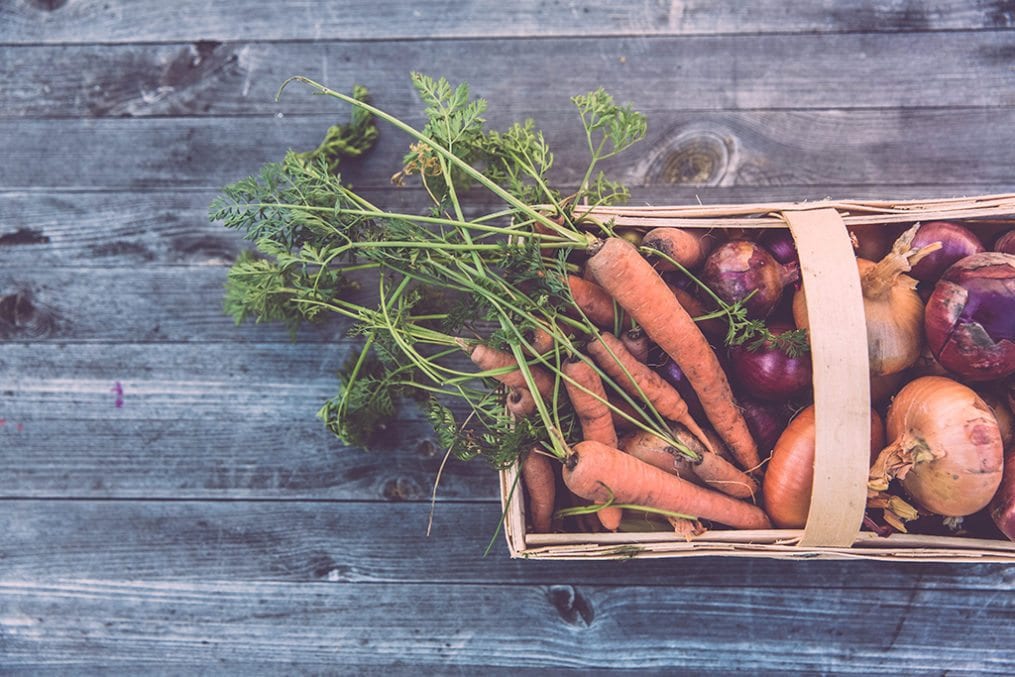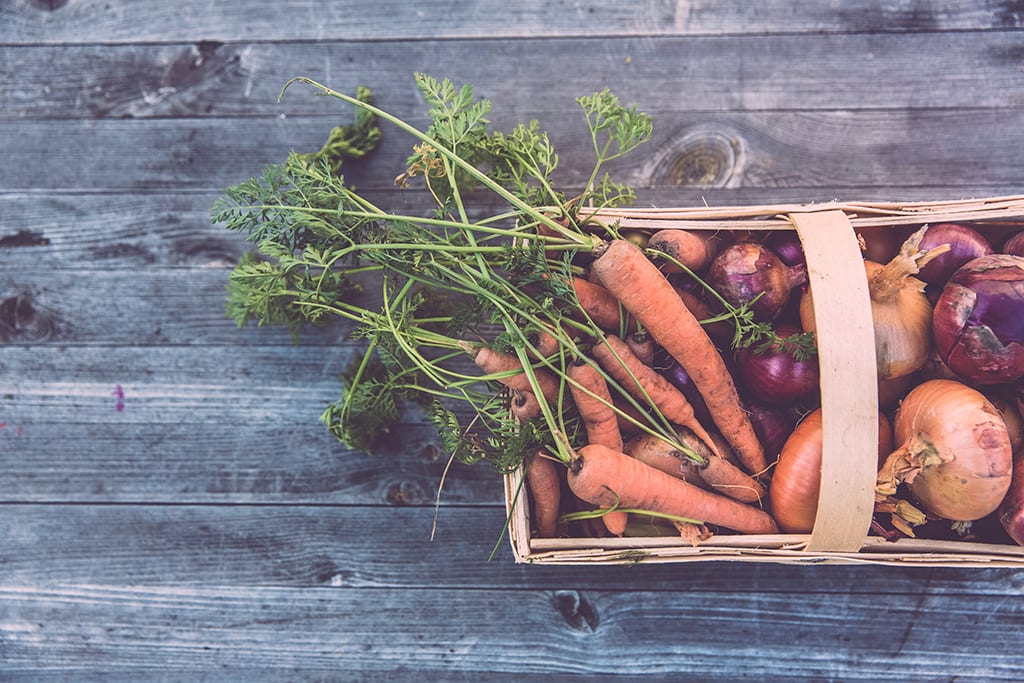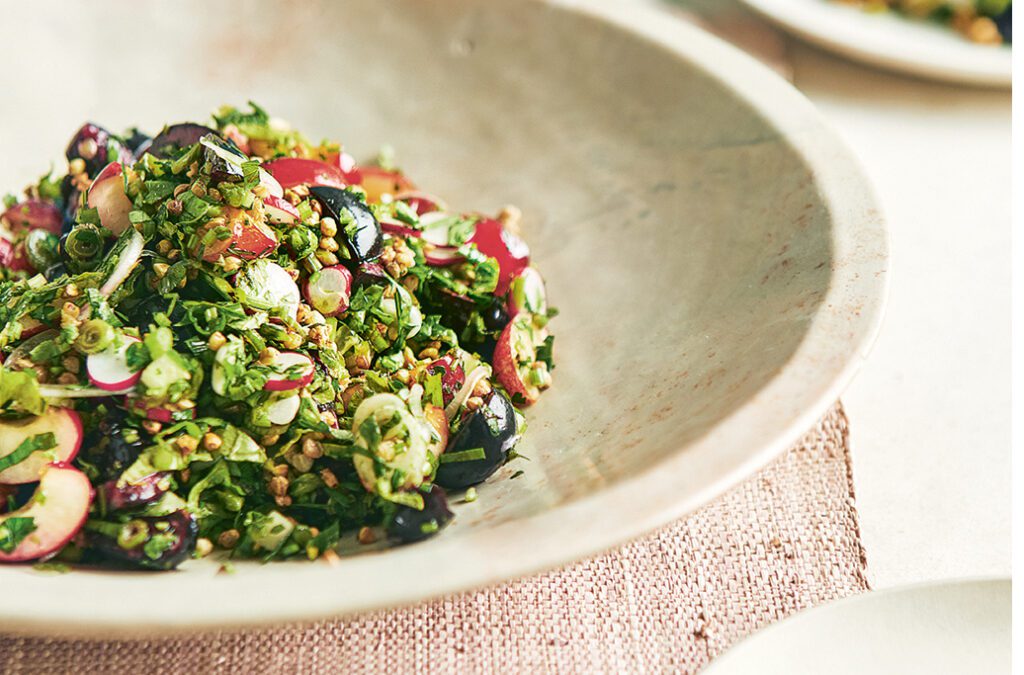5 ways vegetarians can eat more sustainably

Food is at the heart of many environmental issues – it’s a significant contributor to climate change and responsible for 60 per cent global biodiversity loss. That’s why WWF is encouraging people to consider the impact of their diet on the planet and make a promise to eat more sustainably for Earth Hour 2018. Make a start with these easy steps:
1 Expand your repertoire
This is all about adding choice and flavour to ensure we’re having a healthy and balanced plant-based diet. We can take a lot of inspiration from traditional cuisines where much of the food is plant-based, from delicious salads and vegetable-based stews, to pies, tagines, pasta and rice dishes.
Need some inspiration? For an Asian twist, try this nutritious leek and tofu noodle bowl, or go Mediterranean with a fig, rocket and mozzarella salad.
2 A colourful meal is a healthy meal
When adapting our diet, it’s important to continue to expand our taste horizons. Currently, too many people rely on the same dishes and the same core ingredients, particularly when cooking at home. By having a colourful plate, we will be adding variety to our diet while ensuring a more nutritious, natural, flavourful and exciting meal.
3 Shop smart, waste less
When shopping, remember to bring your own reusable bags with you to carry your shopping, and choose to buy loose products or those with less packaging. This also helps to control the amount we buy, so we take home only what we need. When we throw away food, we are throwing away natural resources and money. The average UK household wastes approximately 30 per cent of the food it buys – that’s like taking £100 out of the bank and putting £30 straight in the bin. Get creative with leftovers so your pennies and food provisions stretch even further.
4 Know what you’re eating
This is important, if a little tricky. We must become more aware of what’s on the packaging of the food we buy. There are various standards you can find on food packets that make sure our food is sourced and produced sustainably. Logos to look out for next time you’re shopping include Fairtrade (protecting farmers and workers in developing countries) and RSPO (sustainable palm oil).
5 Ditch ultra-processed foods
Processed foods often contain high levels of sugar, fat and salt, so we should consider these as treats, not staples. They also tend to be far more resource-intensive to produce. For healthier treat ideas, check out this honey almond snack, or whip up a batch of these prune and oatmeal muffins.
By following these simple steps, you’ll be helping to reduce the impact of climate change, conserving ecosystems on which precious wildlife depend, and improving your and your family’s health and wellbeing with nutritious and delicious meals.
WWF’s Earth Hour campaign is the world’s biggest environmental event, and this year it takes place 24 March 8:30-9:30pm. Around nine million people in the UK participate alongside businesses, communities and iconic landmarks that switch off their lights to show they care about the future of our planet. This year, we are also asking people across the UK to make a promise to protect the planet. This could be by ditching plastic bags for material ones, switching to green energy, reducing meat consumption, or investing in a reusable coffee cup.











